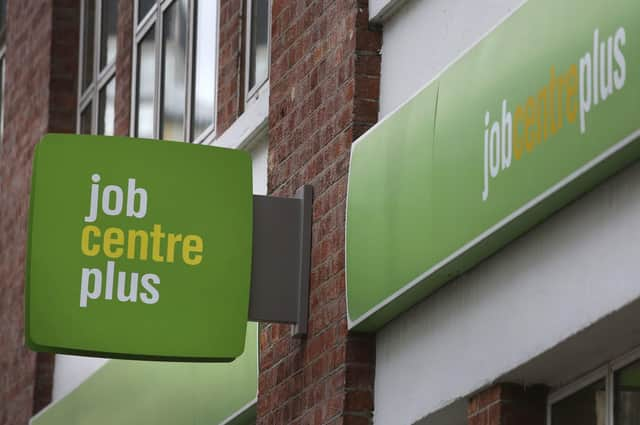Younger workers on front line as UK unemployment hits highest level for more than four years: Scottish rate dips


The unemployment rate reached 5 per cent in the three months to November for the first time since early 2016 after a further 202,000 people lost their jobs, according to the Office for National Statistics (ONS).
People aged 25 to 34 and the lower paid face the greatest risk of losing their jobs, with the latest data showing that in the three months to November, people in that age range had a redundancy rate of 16.2 per 1,000, a fivefold increase on the same period a year earlier.
Advertisement
Hide AdAdvertisement
Hide AdScotland recorded a slight increase in employment since the last quarter. The ONS said the employment rate for those aged 16 to 64 between September and November was 74.4 per cent, a 0.5 percentage point increase on the figure for the previous quarter.
In comparison with the other UK regions it was the joint largest increase in the rate estimates for the period, along with the south west of England.
The unemployment rate among those aged 16 and over in Scotland was 4.4 per cent – 0.1 per cent down on June to August.
Business Minister Jamie Hepburn said: “HMRC early estimates for December 2020 for Scotland, also published this morning, show that there were 2.3 million payrolled employees in Scotland, increasing by 9,000 compared with November, however 67,000 lower than a year ago.
Advertisement
Hide AdAdvertisement
Hide Ad“These figures still do not reflect the full impact of coronavirus or outlook for employment as the Job Retention Scheme continues to play an important role in supporting employers and employees.
“Combined with the huge economic uncertainty caused by Brexit, this remains an extremely uncertain time for the economy and jobs.”
Figures for December showed there were 828,000 fewer Britons on company payrolls since before the coronavirus crisis struck last February as the pandemic hammers the jobs market.
Experts warned that there would be further pain to come as a result of the latest lockdowns.
Advertisement
Hide AdAdvertisement
Hide AdDerrick Dunne, chief executive of Beaufort Investment, said: “UK unemployment has risen from 4.9 per cent to 5 per cent for the three months ending November, marking the highest level since 2015.
“As if these numbers aren’t worrying enough, they continue to be masked by the ever-extending furlough scheme, so we know the true extent of the damage remains to be seen.”
Laith Khalaf, financial analyst at AJ Bell, noted: “Unemployment hit 5 per cent at the back end of last year and unfortunately the renewed lockdown means even more job losses are in the post.
“The unemployment rate was expected to peak this summer, at somewhere around 7.5 per cent, but a lengthening lockdown will have economists tearing up their predictions, and pushing them back, and up.
Advertisement
Hide AdAdvertisement
Hide Ad“Even the strong wage growth recorded in the latest data isn’t cause for celebration, seeing as it derives from the loss of lower paid jobs in the economy.”
A message from the Editor:
Thank you for reading this article. We’re more reliant on your support than ever as the shift in consumer habits brought about by coronavirus impacts our advertisers. If you haven’t already, please consider supporting our trusted, fact-checked journalism by taking out a digital subscription: www.scotsman.com/subscriptions
Comment Guidelines
National World encourages reader discussion on our stories. User feedback, insights and back-and-forth exchanges add a rich layer of context to reporting. Please review our Community Guidelines before commenting.
